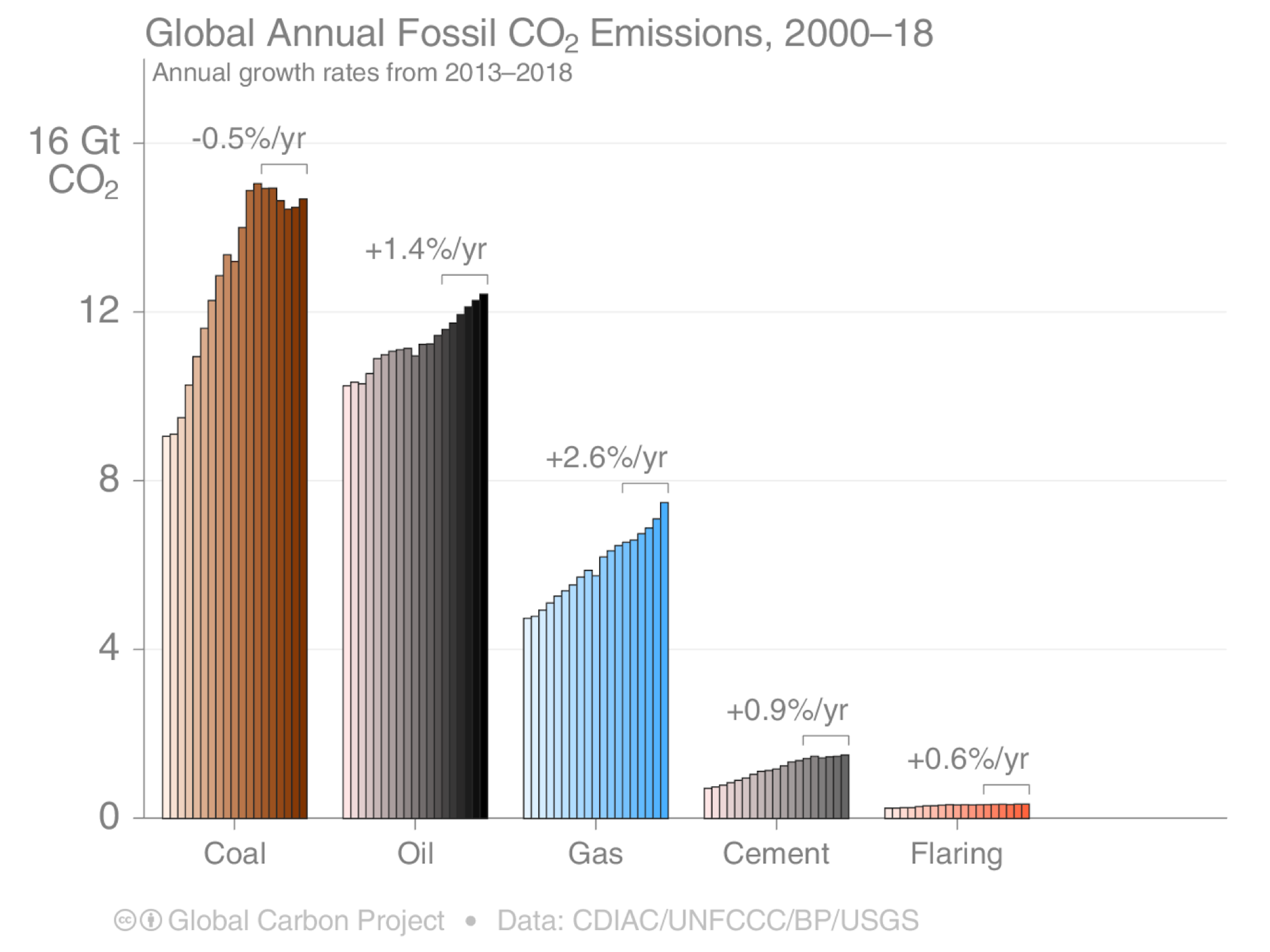Global emissions to hit 36.8 billion tonnes, beating last year's record high
https://theconversation.com/global-emissions-to-hit-36-8-billion-tonnes-beating-last-years-record-high-128113
Global emissions for 2019 are predicted to hit 36.8 billion tonnes of carbon dioxide ( CO₂ ), setting yet another all-time record. This disturbing result means emissions have grown by 62% since international climate negotiations began in 1990 to address the problem. The figures are contained in the Global Carbon Project, which today released its
14th Global Carbon Budget.
Digging into the numbers, however, reveals a silver lining. While overall carbon emissions continue to rise, the rate of growth is about two-thirds lower than in the previous two years. Driving this slower growth is an extraordinary decline in coal emissions, particularly in the United States and Europe, and growth in renewable energy globally. A less positive component of this emissions slowdown, however, is that a lower global economic growth has contributed to it. Most concerning yet is the very robust and stable upward trends in emissions from oil and natural gas.
Coal is king, but losing steam
The burning of coal continues to dominate CO₂ emissions and was responsible for 40% of all fossil fuel emissions in 2018, followed by oil (34%) and natural gas (20%). However, coal emissions reached their highest levels in 2012 and have remained slightly lower since then. Emissions have been declining at an annual average of 0.5% over the past five years to 2018.

In 2019, we project a further decline in global coal CO₂ emissions of around 0.9%. This decline is due to large falls of 10% in both the US and the European Union, and weak growth in China (0.8%) and India (2%). The US has announced the closure of more than 500 coal-fired power plants over the past decade, while the UK’s electricity sector has gone from 40% coal-based power in 2012 to 5% in 2018. Whether coal emissions reached a true peak in 2012 or will creep back up will depend largely on the trajectory of coal use in China and India. Despite this uncertainty, the strong upward trend from the past has been broken and is unlikely to return.
snip

